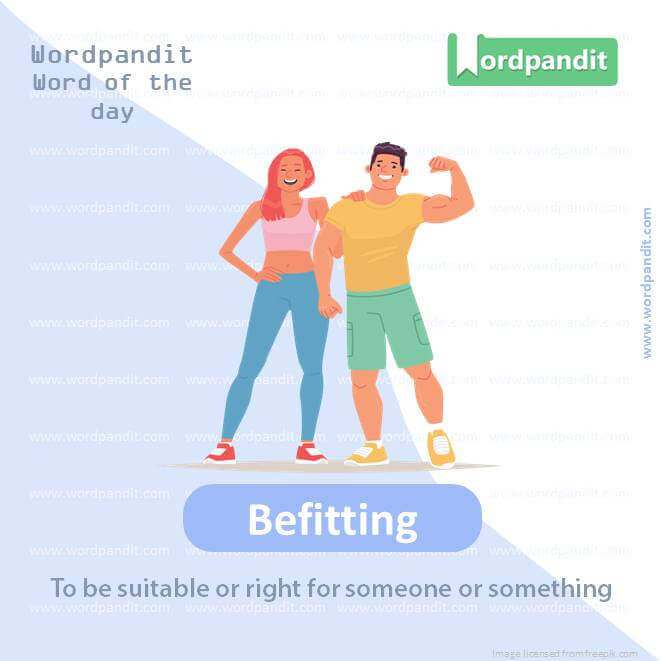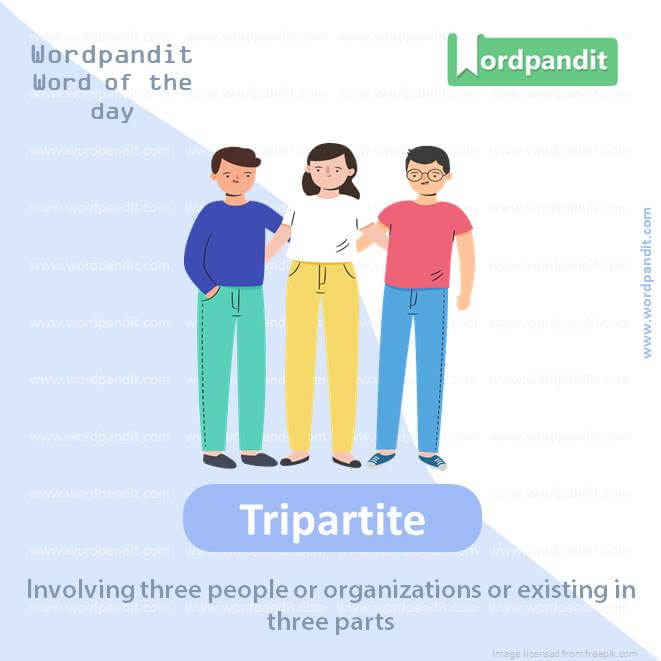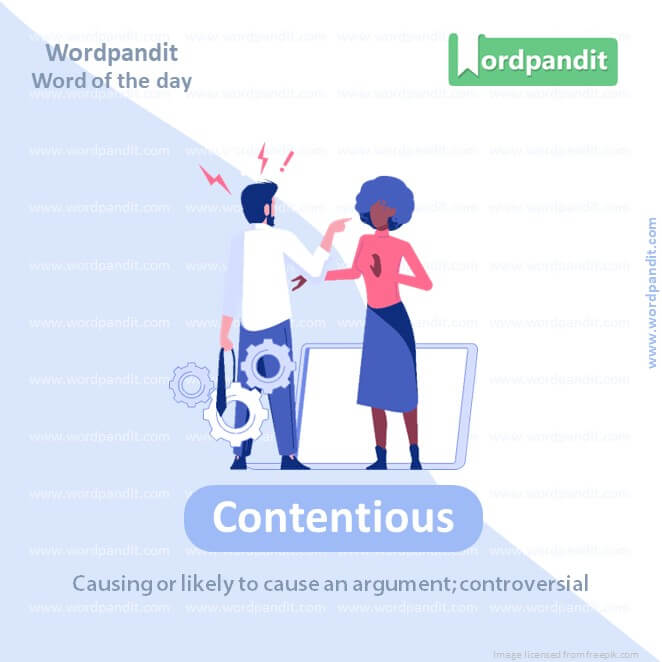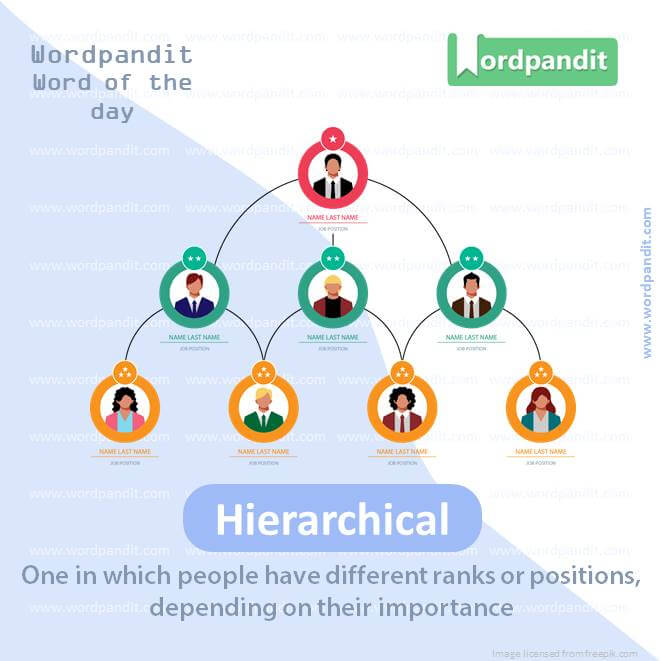Daily Vocabulary Words: List of Daily Used Words
Hi there. Welcome to this special section @ Wordpandit.
Our endeavour here is straightforward: highlighting important daily vocabulary words, you would encounter in The Hindu. This is your repository of commonly used words; essentially, we are posting a list of daily used words. Hence, this has significant practical application as it teaches you words that are commonly used in a leading publication such as The Hindu.
Visit the website daily to learn words from The Hindu.
WORD-1: SCRUTINIZE
CONTEXT: Amidst allegations of financial irregularities, the audit committee has been set up to scrutinize the accounts of the state-run enterprises.
SOURCE: The Hindu
EXPLANATORY PARAGRAPH: Imagine you have a puzzle piece and you look at it really closely to see all its tiny details. When you look at something very carefully like that, you’re doing what’s called “scrutinizing.”
MEANING: To examine or look at something very closely and carefully (verb).
PRONUNCIATION: skroo-tuh-nyze
SYNONYMS: inspect, examine, observe, study, analyze, review, probe
USAGE EXAMPLE:
1. He will scrutinize the document for any errors.
2. Before buying the antique, she took a moment to scrutinize it.
3. Detectives scrutinized the scene for clues.
4. Teachers often scrutinize homework to check for understanding.
WORD-2: CARNAGE
CONTEXT: The terror attack in the heart of the city resulted in carnage, leaving many families mourning the loss of their loved ones.
SOURCE: The Hindu
EXPLANATORY PARAGRAPH: Imagine lots of toys breaking all at once, and there are pieces everywhere. “Carnage” means a lot of destruction or damage, but usually, it’s about things being hurt or broken.
MEANING: Large-scale and violent destruction, especially in battle (noun).
PRONUNCIATION: kahr-nij
SYNONYMS: slaughter, massacre, devastation, destruction, butchery, bloodbath
USAGE EXAMPLE:
1. The battlefield was a scene of carnage with many soldiers injured.
2. The storm left a trail of carnage in its wake.
3. The movie depicted the carnage of war.
4. The road accident was sheer carnage with multiple vehicles damaged.
WORD-3: PLACEBO
CONTEXT: The recent medical trial has raised ethical questions, as many patients were unaware they were given a placebo instead of the actual medication.
SOURCE: The Hindu
EXPLANATORY PARAGRAPH: Imagine you have a pretend medicine that doesn’t really do anything, but makes you feel better because you think it’s real. That pretend medicine is called a “placebo.”
MEANING: A substance or treatment that has no real effect, but is given to make someone believe they are getting real medicine (noun).
PRONUNCIATION: pluh-see-boh
SYNONYMS: dummy, sham, mock, pretend, fake, imitation
USAGE EXAMPLE:
1. The doctor gave her a placebo pill to calm her nerves.
2. Some patients felt better after taking the placebo.
3. The study compared the effects of the real drug with a placebo.
4. Placebos are often used in clinical trials to test new medications.

WORD-4: BEFITTING
CONTEXT: The tribute paid to the veteran actor during the film festival was seen as befitting recognition of his contributions to cinema.
SOURCE: The Hindu
EXPLANATORY PARAGRAPH: Imagine wearing a princess dress to a fancy party because it’s just perfect for the occasion. When something is just right or suitable for a situation, it’s “befitting.”
MEANING: To be suitable or right for someone or something (adjective).
PRONUNCIATION: bih-fit-ing
SYNONYMS: fitting, apt, suitable, appropriate, proper, right
USAGE EXAMPLE:
1. She wore a befitting dress for the evening gala.
2. His actions were not befitting of a leader.
3. They chose a befitting song for their first dance.
4. It was a tribute befitting the great artist.

WORD-5: PERSISTENCE
CONTEXT: The persistence of the local community in protecting their natural habitat has yielded positive results, with the government granting it protected status.
SOURCE: The Hindu
EXPLANATORY PARAGRAPH: Imagine trying to learn to ride a bike and falling down, but you keep trying again and again until you can ride. That never-give-up spirit is called “persistence.”
MEANING: The quality of being persistent, or the act of persisting (noun).
PRONUNCIATION: per-sis-tence
SYNONYMS: determination, perseverance, tenacity, resolve, grit, endurance
USAGE EXAMPLE:
1. With persistence, she finally mastered the piano piece.
2. Persistence is key to achieving your goals.
3. His persistence in the face of challenges inspired others.
4. Her persistence paid off when she won the race.
You did a fantastic job laying out the format. Here’s what you’ve requested:

WORD-6: TRIPARTITE
CONTEXT: The tripartite agreement between the nations aims at sustainable water resource management in the shared river basin.
SOURCE: The Hindu
EXPLANATORY PARAGRAPH: Imagine a pizza cut into three equal pieces. When something is divided into three parts, we call it “tripartite.”
MEANING: Involving three people or organizations or existing in three parts (adjective).
PRONUNCIATION: try-par-tite
SYNONYMS: threefold, triple, tripart, three-part, treble, trilateral
USAGE EXAMPLES:
1. The treaty was a tripartite agreement between three countries.
2. The project was a tripartite collaboration.
3. The book has a tripartite structure.
4. They held a tripartite meeting to discuss the issue.
WORD-7: MARGINALISED
CONTEXT: The new policy initiative aims to empower the marginalised sectors of society, offering them better access to education and employment opportunities.
SOURCE: The Hindu
EXPLANATORY PARAGRAPH: Imagine being at a party where everyone is playing together, but no one lets you play. When people are left out or not treated fairly, they can feel “marginalised.”
MEANING: Treated as if they are not important or not part of the main group (adjective).
PRONUNCIATION: mar-juh-nuh-lized
SYNONYMS: sidelined, ostracized, alienated, disregarded, neglected, overlooked
USAGE EXAMPLES:
1. Marginalised communities often face difficulties accessing basic services.
2. The report highlighted the plight of the marginalised groups.
3. She felt marginalised at work because of her opinions.
4. The policy aims to uplift the marginalised sectors of society.

WORD-8: CONTENTIOUS
CONTEXT: The dam project has become a contentious issue, with environmentalists and development proponents clashing over its implications.
SOURCE: The Hindu
EXPLANATORY PARAGRAPH: Imagine two friends arguing about which ice cream flavor is the best. When something causes a lot of arguments or disagreements, it’s “contentious.”
MEANING: Causing or likely to cause an argument; controversial (adjective).
PRONUNCIATION: kuhn-ten-shus
SYNONYMS: controversial, disputable, debatable, arguable, polemical, divisive
USAGE EXAMPLES:
1. The topic is a contentious one in many circles.
2. The decision to build the dam became highly contentious.
3. The politician made a contentious statement during the debate.
4. Climate change is a contentious issue for some.

WORD-9: HIERARCHICAL
CONTEXT: Critics argue that the hierarchical nature of the organization has stymied innovation and kept young talent from rising.
SOURCE: The Hindu
EXPLANATORY PARAGRAPH: Imagine a tower of building blocks where the biggest block is at the bottom and the smallest at the top. When things are organized in levels or ranks, like those blocks, it’s “hierarchical.”
MEANING: One in which people have different ranks or positions, depending on their importance (adjective).
PRONUNCIATION: hye-ruh-ki-kuhl
SYNONYMS: ranked, graded, tiered, ordered, stratified, echeloned
USAGE EXAMPLES:
1. The company has a strict hierarchical structure.
2. The caste system is a form of hierarchical social order.
3. Some people dislike very hierarchical organizations.
4. The diagram showed a hierarchical breakdown of the department.
WORD-10: SUBSISTENCE
CONTEXT: The prolonged drought has threatened the subsistence of many small-scale farmers, pushing them to the brink of poverty.
SOURCE: The Hindu
EXPLANATORY PARAGRAPH: Imagine you have just enough food and water to live and nothing extra. “Subsistence” means having only the very basic things you need to stay alive.
MEANING: The condition of having only enough food, money, or supplies to stay alive (noun).
PRONUNCIATION: suh-bis-tence
SYNONYMS: survival, existence, sustenance, livelihood, living, maintenance
USAGE EXAMPLES:
1. Many families in the region live at a subsistence level.
2. Farming provides a subsistence for the majority in the village.
3. The community relies on subsistence agriculture.
4. They struggled for subsistence after losing their jobs.
Vocabulary PDF
In the digital age, the way we learn languages has transformed dramatically. Among the myriad of resources at our disposal, a ‘vocabulary PDF’ serves as an incredibly effective tool. It offers a structured, accessible and convenient method of enhancing our language skills. To maximize the potential of ‘vocabulary PDF’, it is crucial to understand how to make the most of it.
First off, when venturing through the process of learning with a ‘vocabulary PDF’, maintaining consistent learner engagement is pivotal. This involves regular revision sessions where you consistently go back and refresh your memory about previously learned words. This cyclic process is particularly effective in promoting long-term retention of the vocabulary.
While leveraging a ‘vocabulary PDF’, it’s also beneficial to annotate as you progress. Annotation brings an interactive aspect to your learning, making it dynamic and personalized. Make notes of context, synonyms, antonyms, or even create sentences using the new words. This engagement with the ‘vocabulary PDF’ aids in imbibing the meaning and usage of the words.
Another strategic approach to mastering a ‘vocabulary PDF’ is to utilize a reading aloud technique. Listening to the words as you speak them out loud can stimulate auditory learning, enhancing your pronunciation and comprehension of the vocabulary.
When using a ‘vocabulary PDF’, it is also advantageous to supplement your learning through applications of the new words. Write an essay, engage in a conversation, or post on social media using the new words. This reinforces the acquired vocabulary, augmenting your grasp over them.
In conclusion, a ‘vocabulary PDF’ is a potent instrument that, when harnessed effectively, can significantly bolster your language learning journey. It requires a blend of consistent revision, active annotation, auditory engagement, and practical application. With these strategies in hand, mastering ‘vocabulary PDF’ can be a rewarding and successful experience that fuels your linguistic endeavors.











